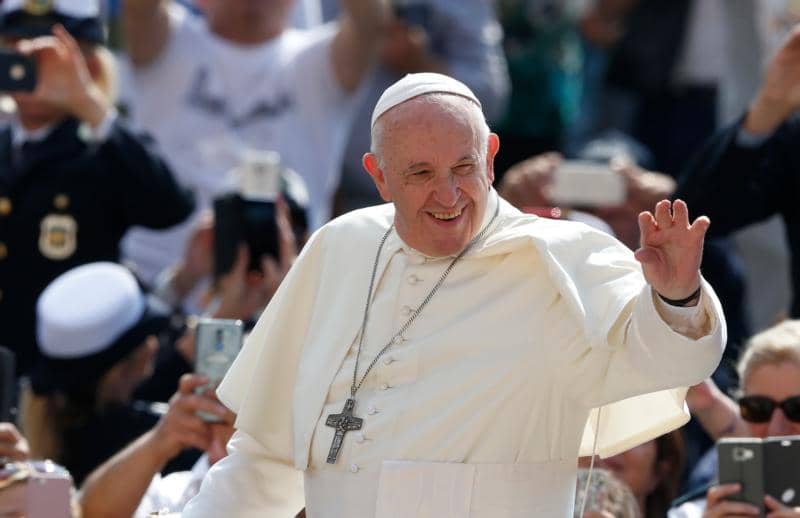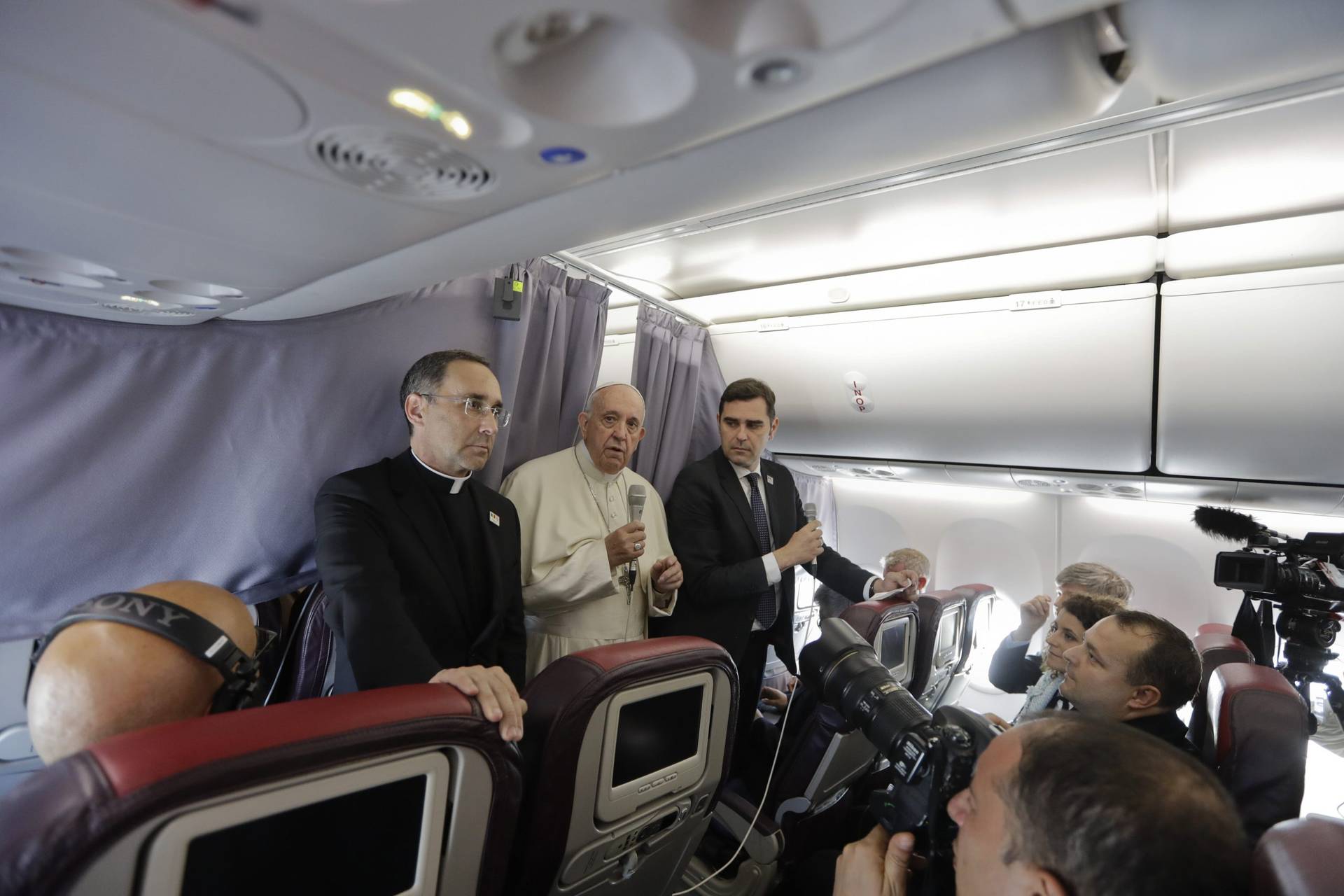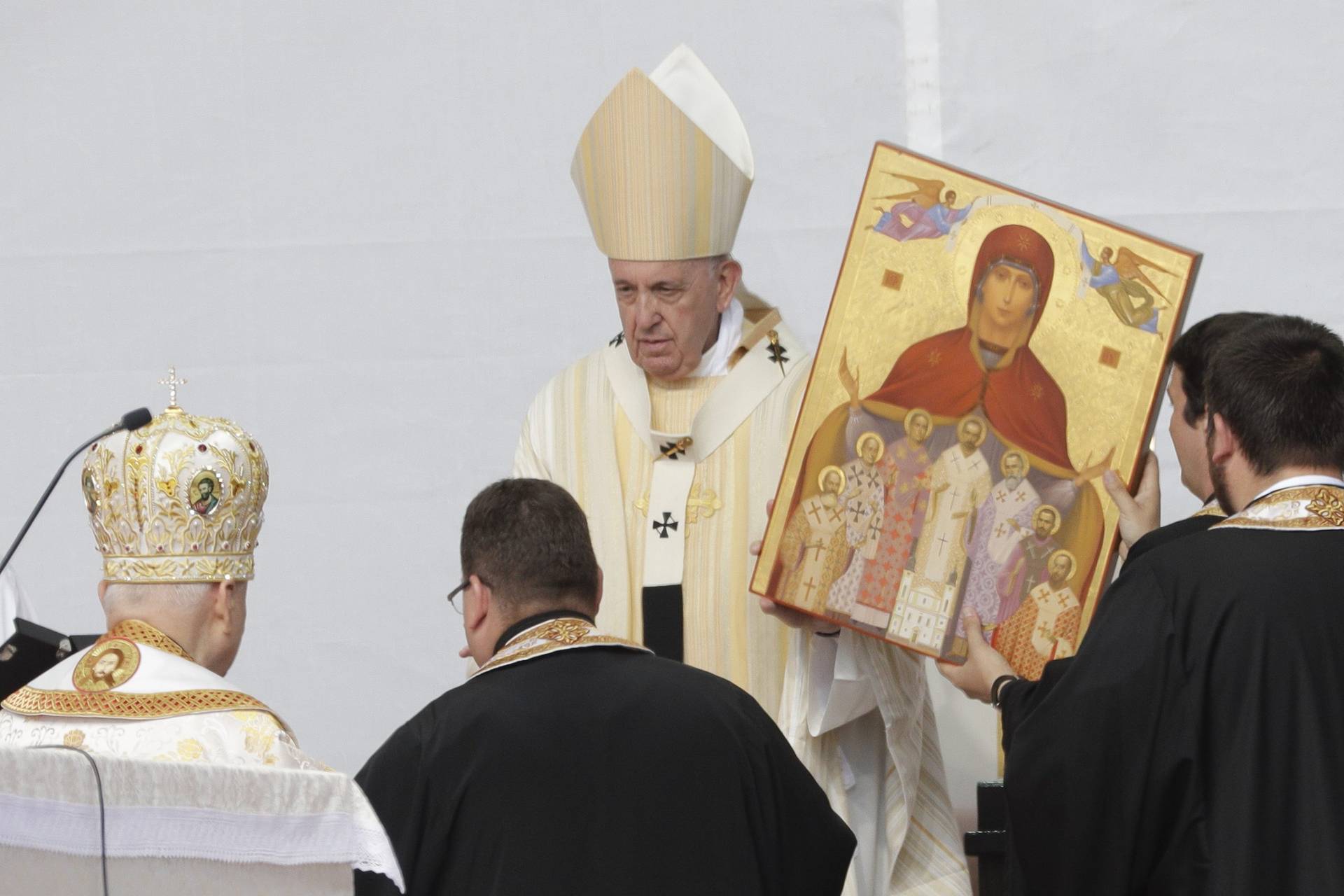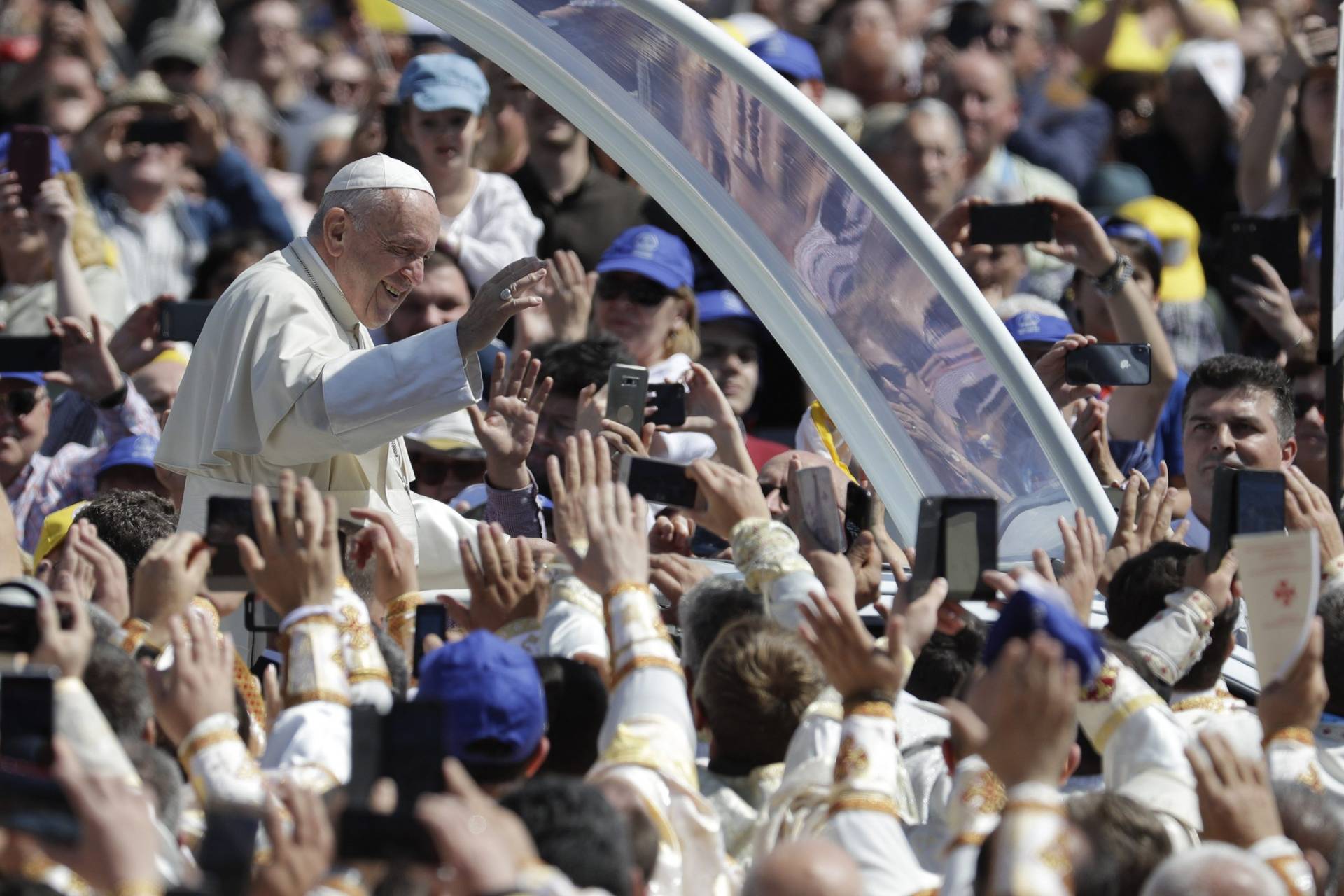BUCHAREST, Romania – Pope Francis landed in the Eastern European country of Romania on Friday, where he warned about the “hurdles” created by progress and called for “a greater collaboration” among its political and religious authorities.
“Confronting the problems of this new chapter of history, identifying effective solutions, and finding the resolve to implement them, calls for greater cooperation on the part of the nation’s political, economic, social and spiritual forces,” Francis said in a speech to local authorities, civil society and the diplomatic corps in the capital city of Bucharest.
“To move forward together, as a way of shaping the future, requires a noble willingness to sacrifice something of one’s own vision or best interest for the sake of a greater project, and thus to create a harmony that makes it possible to advance securely towards shared goals,” he added.
The Presidential palace in Bucharest where Francis gave his speech showcased the rich religious and cultural diversity of Romania. Patriarch Daniel, head of the dominant Orthodox Church, was in attendance as well as Jewish and Muslim leaders.
Over 80 percent of Romanians identify as Orthodox, followed by Protestants (6 percent) and both Roman and Greek Catholics (4 percent).
After suffering decades of totalitarian rule (first under a fascist regime in World War II, and then under the Communists until 1989), Francis praised Romania for its commitment to building democracy “through the plurality of its political and social forces and their reciprocal dialogue.”
The eastern European country, which currently presides over the influential European Commission, has seen rapid development in recent years and its economic growth (almost 6 percent) has dwarfed that of its neighbors and Western European nations.
“While the changes brought by the dawn of this new era have led to genuine achievements,” Francis said, “they have also entailed inevitable hurdles to be overcome and problematic consequences for social stability and the governance of the territory itself.”
Among the “hurdles” that hinder Romania’s development is a considerable diaspora – 4 million people according to recent surveys – of young Romanians looking for better jobs and life opportunities in other EU countries, namely Spain, Italy and Germany.
“Today our problem is the work force,” said Liviu – Petru Zăpîrţan, Romanian Ambassador to the Holy See, in a May 24 interview with Crux. “Now there is an economic growth and we need people to work.”
The emigration also caused the depopulation of several villages, the pope noted, and “and the weakening of the profound cultural and spiritual roots that have sustained you in times of trial.”
As usual, Francis devoted special attention to the weak and the poor, often seen “as undesirables that keep the ‘machine’ from functioning” and must instead be fully integrated and welcomed in society.
“Only to the extent that a society is concerned for its most disadvantaged members, can it be considered truly civil,” Francis said.
Francis encouraged the multifaceted religious, cultural and political groups of Romania to achieve their goal not based on the concerns of “the growing power of centers of high finance,” but by placing the human person at the center.
The President of Romania, Klaus Werner Iohannis, who greeted the pope at the airport and met with him at the Presidential palace, recalled John Paul II’s message during his visit in 1999 “of hope for the future of our country, its European destiny and the role of our society as a bridge between East and West.”
Today, Iohannis said, Romania has welcomed this message as shown by its lack of being led by nationalist and populist parties – a singularity in Eastern Europe – and its overwhelmingly pro-European vote in in May.
“In a world marked by complex phenomena, today more than ever Europe needs models of peaceful coexistence, models of dialogue between majorities and minorities, dialogue between cultures, that offer points of reference for the consolidation of tolerance and mutual respect,” the president said.
“Romania is an example of ‘good practices,’ for the way it has ensured and ensures the respect for the rights of people belonging to the 20 historic national minorities in its territory,” he added.
Follow Claire Giangravè on Twitter: @ClaireGiangrave
Crux is dedicated to smart, wired and independent reporting on the Vatican and worldwide Catholic Church. That kind of reporting doesn’t come cheap, and we need your support. You can help Crux by giving a small amount monthly, or with a onetime gift. Please remember, Crux is a for-profit organization, so contributions are not tax-deductible.













